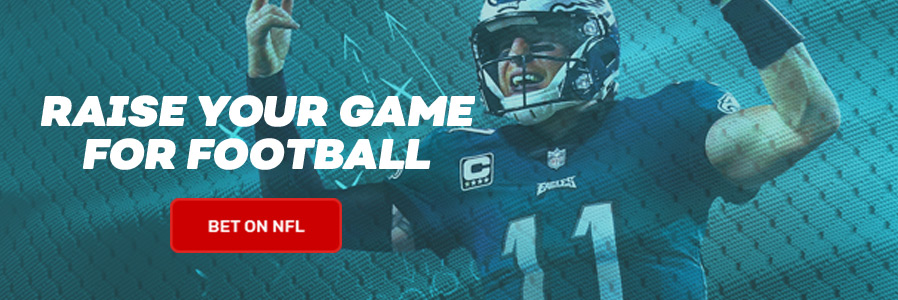Restoration Of Americas Wire Act Explained
The Restoration of America's Wire Act, or RAWA, was the proposal for a new online betting law. More directly, it was and is a blatant attempt by various anti-gambling activists in the United States Congress to effectively modernize the Federal Wire Act of 1961. But not in a good way. Instead of relegating the Wire Act to the dustbin of history by retracting its many ineffectual and unenforceable prohibitions, RAWA was an attempt to ban almost everything regarding online gambling that isn't already against the law. Currently, there is no threat of RAWA reawakening from the dead - it seems to be done and dusted.
The US Justice Department currently interprets the Wire Act as a narrow control on gambling, saying any inherent online ban only involves sports betting. That means that the Wire Act does not apply to types of gambling such as online poker, casinos, bingo games, and so on. The big problem is that RAWA would cause any state-regulated online gambling industry to be immediately illegal, and it would remove from individual states all future rights to control such gambling within their borders. This law would also render Internet-based state lottery sales illegal. With so many states running online gambling at this point, the idea of RAWA passing anything seems pretty unlikely. That said, it's worth remembering this attempt - anti-gambling activists (funded by casino billionaires) will continue to make efforts like this.
What Does RAWA Change About The Wire Act?
In a nod to lying politicians everywhere, the Restoration of America’s Wire Act doesn’t “restore” anything about the Wire Act. Rather, RAWA expands the Wire Act many times over, doubling down on willful violations of the constitution’s Equal Sovereignty and Nondelegation Doctrines (the two of which, incidentally, formed the basis for New Jersey’s Supreme Court challenge of PASPA, the PASPA, the Professional and Amateur Sports Protection Act of 1992. All the new online betting law would do is remove more rights from the states and their residents, and it would impose more substantial penalties on violators of US gambling regulations.
What Does RAWA Mean For The Online Betting Industry?
On paper, RAWA would severely handicap the online betting industry, severing the main route used by the most people nationwide. As a reliable metric, consider online sports betting in the US. A 2017 study found that only an estimated three percent of the total money spent by Americans on sports betting takes place legally, in-country, and in-person. 97 percent happens online at overseas sportsbooks like Bovada, BetOnline, SportsBetting, MyBookie, and others. This statistic was prior to PASPA being overturned, but the underlying point still remains relevant.
Any law that seeks to explicitly ban that (and all other forms of online gaming to boot) would – again, on paper – completely upend the industry. Why the US government would want to expand a law it has no hope of enforcing even in its existing limited scope is beyond all rational understanding.
So Who Supports RAWA?
Just follow the money. Since RAWA has no possible explanation from a “public good” perspective, you can safely assume that somebody stands to profit mightily from such a new online betting law. And you’d be right. That someone is Sheldon Adelson, the major American casino magnate. Chairman and CEO of Las Vegas Sands Corp., the billionaire is determined to keep his casinos “exclusive” in this evolving, interconnected world. But instead of actually making his bad product better, the jerk wants to make sure nobody else can actually sell you what you want.
Adelson is perfectly fine with banning anything remotely competitive with his business interests, which is why legal online sports betting has got to go. He knows he lacks the infrastructure or core competencies to compete apples-to-apples against more tech savvy brands, so he’s willing to keep the $500 billion sportsbook industry overseas instead of opening the Sands up to an exodus of customers. Plus, he probably has some skin in the game on those overseas books. He’s not stupid.
Would Daily Fantasy Sports Be Banned By RAWA?
Adelson is also smart enough not to demand that Daily Fantasy Sports be banned by RAWA or any other new online betting law. The big brands like DraftKings and FanDuel don’t pose much of a threat to his on-land Las Vegas businesses, and they’ve received a carve-out in RAWA as it stands currently proposed. This could be a case of Adelson simply choosing his battles, or it might be a sign of something a little more conspiratorial. Perhaps Adelson owns interests in DSF? You can be sure he’ll never let us know.
What Other Types Of Betting Are Exempt From RAWA?
In addition to Daily Fantasy Sports, RAWA also has exemptions for horse racing, charitable gaming, insurance, and securities. Yep, the stock market – perhaps the biggest, most manipulative sucker game in US gambling history – is still allowed to steal your money. Clearly, RAWA isn’t out to ban online gambling. Instead, the new online betting law was clearly designed to make it impossible for non-Vegas casinos to compete with Vegas casinos. You know, like the ones Adelson owns. However, now that sports gambling can take place outside of Nevada, its impact would be even more far reaching.
RAWA’s Chances To Become Law
Since Harry Reid, Democrat senator from Nevada (Duh!), is finally retired, RAWA’s chances to become the new online betting law are plummeting. With the Supreme Court ruling in favor of New Jersey that PASPA violated the Tenth Amendment, RAWA’s chances seem worse than ever. Additionally, the Gaming Accountability and Modernization Enhancement Act (a.k.a. the GAME Act) is being tossed around in Congress, and it represents the complete and total opposite of RAWA. Better yet, it seems to have growing support, while RAWA’s is decidedly on the downswing.
It is unlikely that Sheldon Adelson’s illegal attempt to violate state and individual rights will be greeted with open arms. Luckily, RAWA is growing incompatible with what the American people consider to be meaningful legislative priorities. As the public appetite for sports betting and casino gaming continues to grow into an Internet-first industry, it would be foolhardy to believe that the Internet won’t prevail. Adelson needs to stop trying to make gambling a casino-only business. It’s much more likely to end up an online-only business – especially if he keeps doing what he’s doing.








